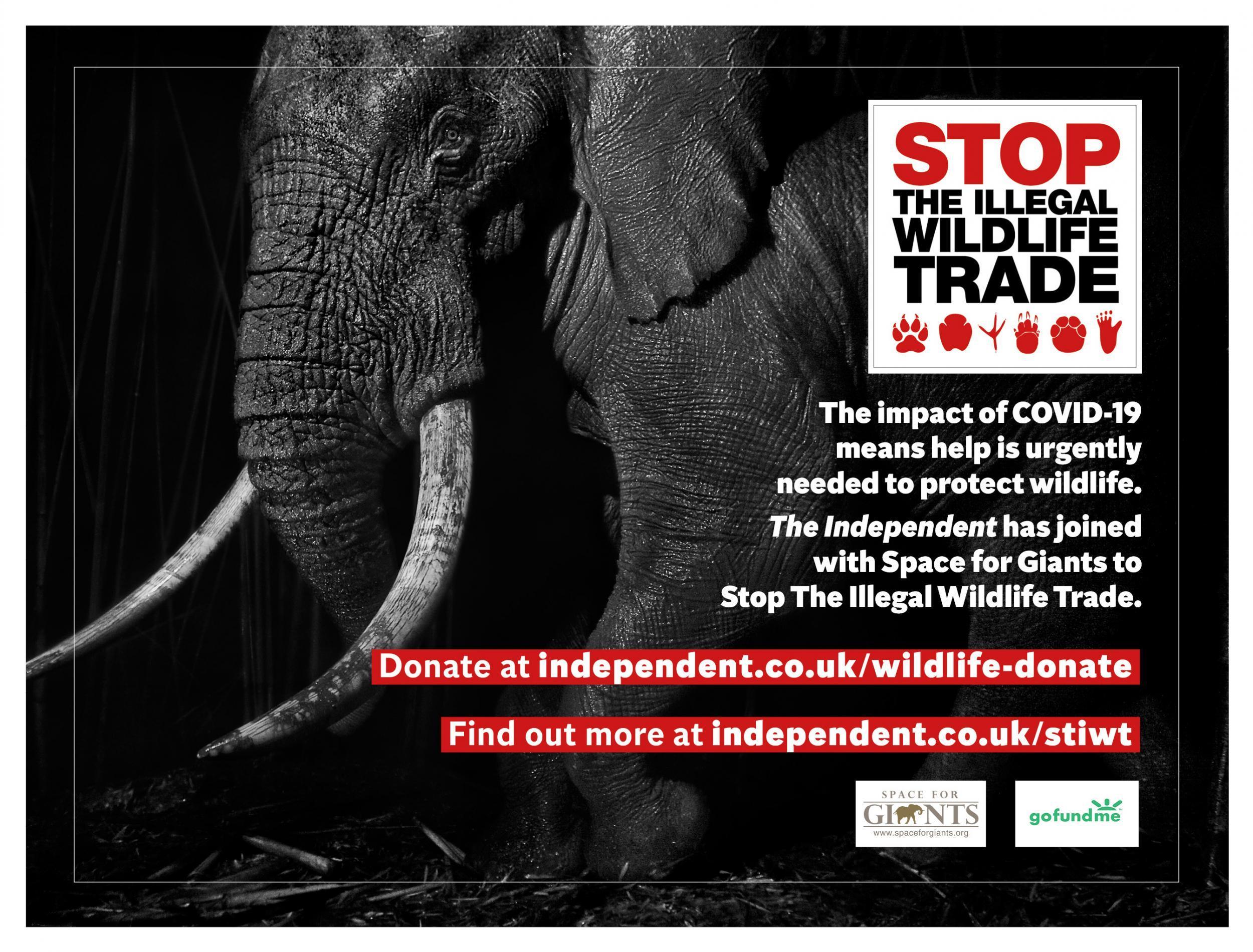Why we need to win the war against rhino poachers
In support of The Independent’s Stop the Illegal Wildlife Trade campaign, former England cricket captain Kevin Pietersen writes about his mission to protect rhinos from extinction

It was 2013 when I first went on a rhino tagging expedition with some buddies who work in conservation in my home country South Africa. It changed my life forever.
Since then, I’ve done as much work as possible to try to help save rhinos from extinction.
I’ve seen a rhino that has just been killed by poachers, its horn sawn off, and I will never forget seeing that – or the overpowering smell.
To see such a majestic animal slaughtered for its horn affected me deeply, and many of us grown men were crying. I realised right then the devastating impact of the illegal wildlife trade, and how we must fight to stop it.
What would drive someone to kill a rhino? It is crazy to think there’s any medicinal value to their horn, which is made from keratin – the same material as your fingernails and hair.
Yet that belief fuels a black market trade in Asia, where one kilogram of rhino horn can fetch up to $60,000 per kilo – more than the price of gold or cocaine.

Since 2013, I’ve learned so much about rhinos and about the hard work of dedicated conservationists striving to save these gentle giants.
They are one of the planet’s most critically endangered animals, on a path to extinction unless we take action. World leaders need to take a big stance to protect not only rhinos but other animals, and to prevent another pandemic from happening.
That’s why I welcome The Independent’s Stop the Illegal Wildlife Trade campaign, which seeks a global effort to clamp down on illegal trade of wild animals and animal parts.
The campaign works with conservation charity Space for Giants to protect wildlife at risk from poachers due to the conservation funding crisis caused by Covid-19. Help is desperately needed to support wildlife rangers, local communities and law enforcement personnel to prevent wildlife crime.
I have friends who are rangers in South Africa, and some of them have bounties on their heads. They leave their families for weeks at a time to patrol the bush. They confront poachers head-on, experience gunfire and risk their lives on a daily basis. It’s an all-out war.
I remember one of them showed me a letter from his young daughter which said: “Daddy, I love kissing you hello when you come back from work, because I sit and worry about you all day. I don’t know if you’re coming back.”
Rangers need our support to keep fighting to protect rhinos and other endangered animals. Space for Giants helps to recruit, train, equip and pay rangers and other wildlife monitoring personnel working in Kenya, Zambia, Zimbabwe and other African nations, and I look forward to working with them in the near future.
Recently, I visited India with National Geographic to learn about the Indian one-horned rhinoceros. No more than 2,000 remain in the wild, and I went to Kaziranga National Park which is home to half of them.
Would-be hunters approach by boat under the cover of darkness to kill rhinos. But thanks to greater security, they are winning the war against poachers. They are global leaders in conservation, and have been so successful they have relocated animals to other parts of India.
However, in other parts of Asia and across Africa, rhinos are still being slaughtered. In Botswana, reports suggest 10 per cent have been lost since the start of the year.
Rhinos are a keystone species, take them out and it can destroy the whole ecosystem.
We have learned to our cost what can happen when humans interfere with nature. Another pandemic is coming, so we must act now to stop it from happening again.
Right now, there’s never a better chance for the world to understand what we need to do: we have to put a stop to the illegal wildlife trade. The legacy of Covid-19 could be a positive one, driving us to secure a peaceful life for rhinos and other endangered animals, to protect both them and humankind.
Kevin Pietersen is former England cricket captain and a cricket commentator
Join our commenting forum
Join thought-provoking conversations, follow other Independent readers and see their replies
Comments